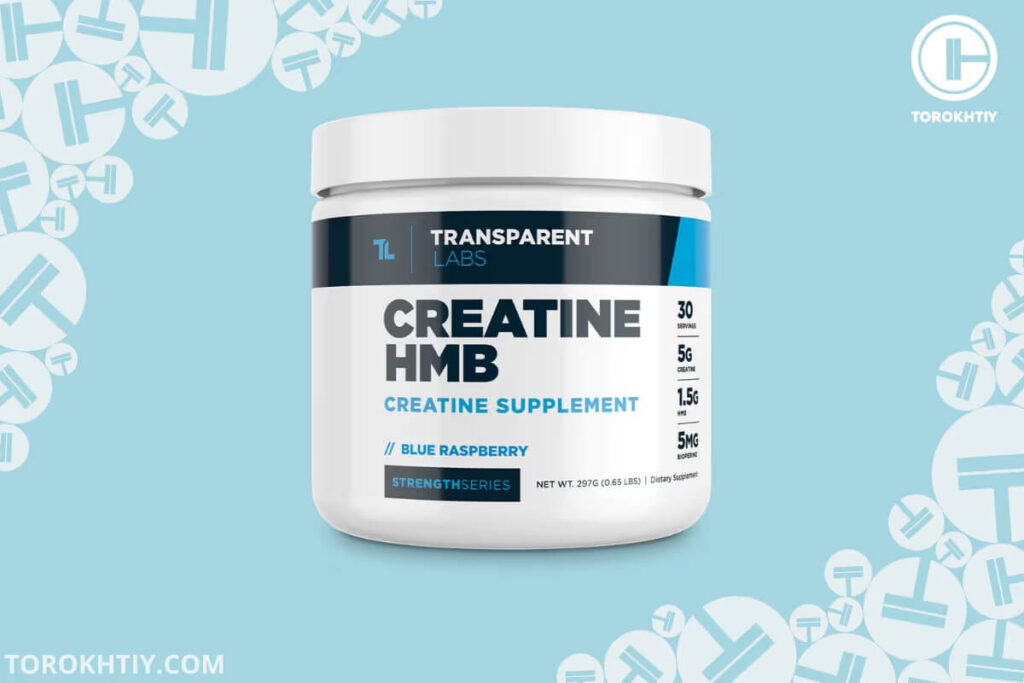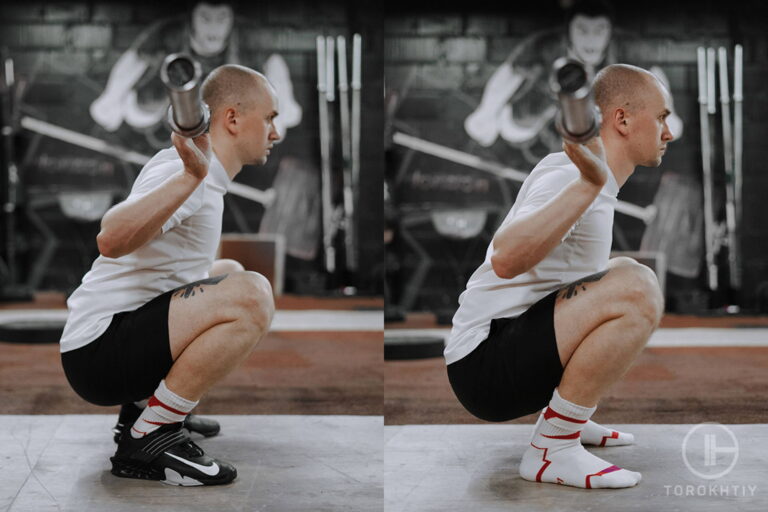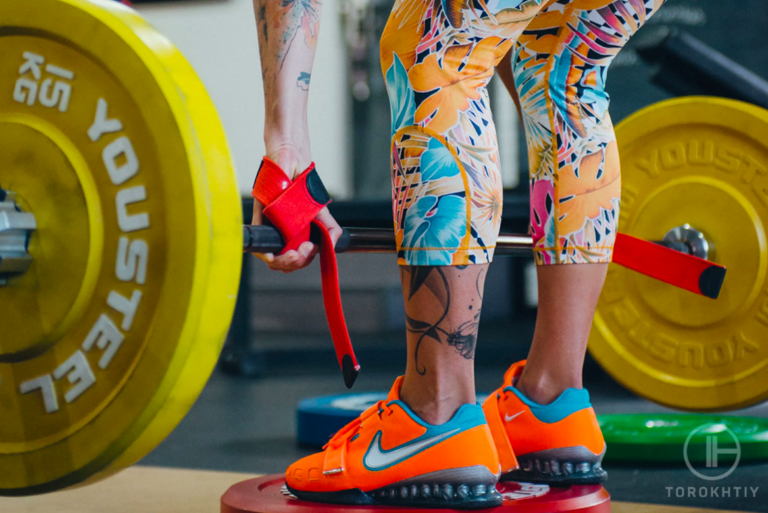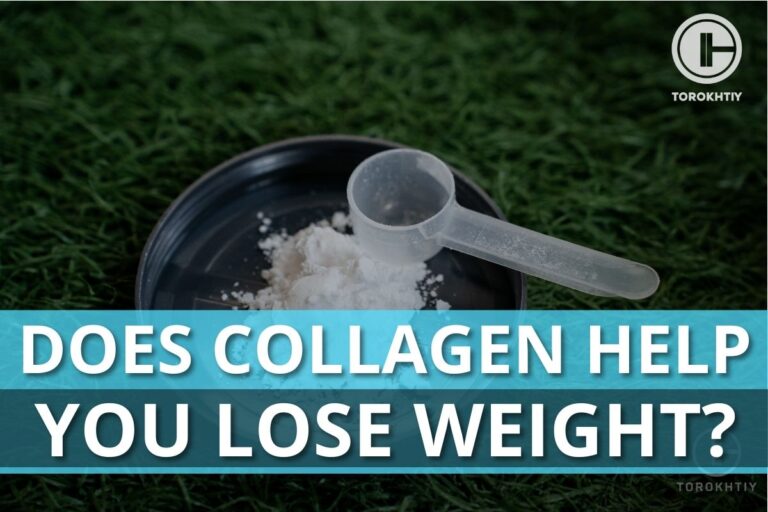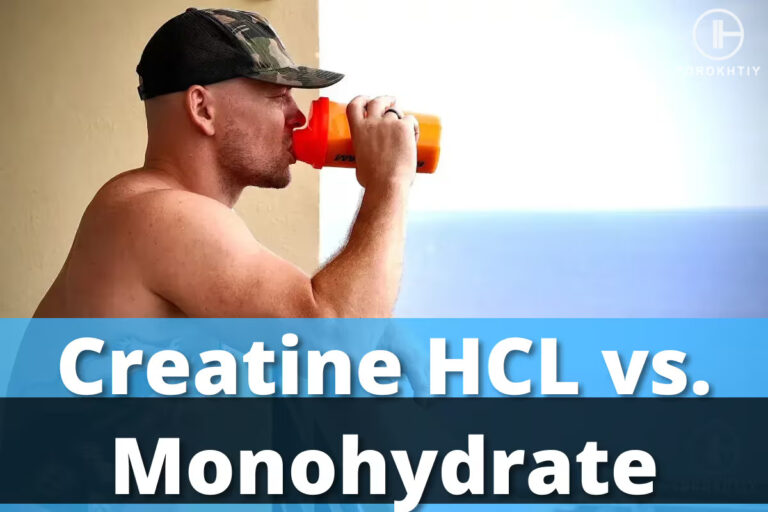Does Creatine Help You Lose Weight?
Creatine monohydrate is a widely researched and recommended sports nutrition supplement. An integral part of bulking and cutting regimens, this magical bodybuilding ingredient steers a multi-billion dollar industry.
It’s only second to protein powders, according to different surveys on using performance-enhancing substances in the US. So, does creatine help you lose weight? Let’s find out.
Does creatine help you lose weight? It improves exercise performance, leading to a greater calorie burn. Despite a scarce direct connection between creatine and weight loss, it can obviously assist and accelerate your body composition goals as long as you maintain a calorie deficit.

Can Creatine Help You Lose Weight?
First of all, let’s balance the mystified equation of weight loss. It’s an inevitable consequence of the energy deficit. Meanwhile, you have to burn more calories than you consume.
It’s been classically established that one pound body weight is equivalent to 3500 calories, more or less. Regardless of the macronutrient content in your diet, cutting back on calories ultimately leads to weight loss.
Therefore, your journey to a trimmed waist and toned body depends on your training and dining conduct. Where does creatine fit in all this?
Several studies applying direct interventions of creatine for weight loss have found insignificant results.
Not to say there are no benefits of creatine for weight loss at all. The International Society of Sports Nutrition recounts many physical and mental benefits of taking creatine-based supplements, including improved exercise performance, muscular adaptations, post-workout recovery, and injury prevention.
So, it might push for a calorie deficit. However, it’s going to be a short-term pain, long-term gain case.
1. Short Term: Water Retention and Weight Gain
The biggest side-effect of ingesting creatine to lose weight is that it might seem to work the opposite. Being an osmotic agent, it causes water retention and weight gain temporarily.
Pulling excessive fluid into muscles is one way creatine stimulates the growth process. If you are using the loading phase (about 20g of creatine per day for about a week), you may expect a maximum increase of 2 liters in total body water and 3 lb in total body mass within that time span.
It is worth understanding that such a significant weight gain can be expected by athletes with very high muscle mass. The average water retention is about 0.5-1 liters.
Although it’s a phantom build-up, seeing the needle of a bathroom scale heading contrary to your expectations can be demoralizing. Stay mindful of this change. And remember, you’re not putting on fat mass.
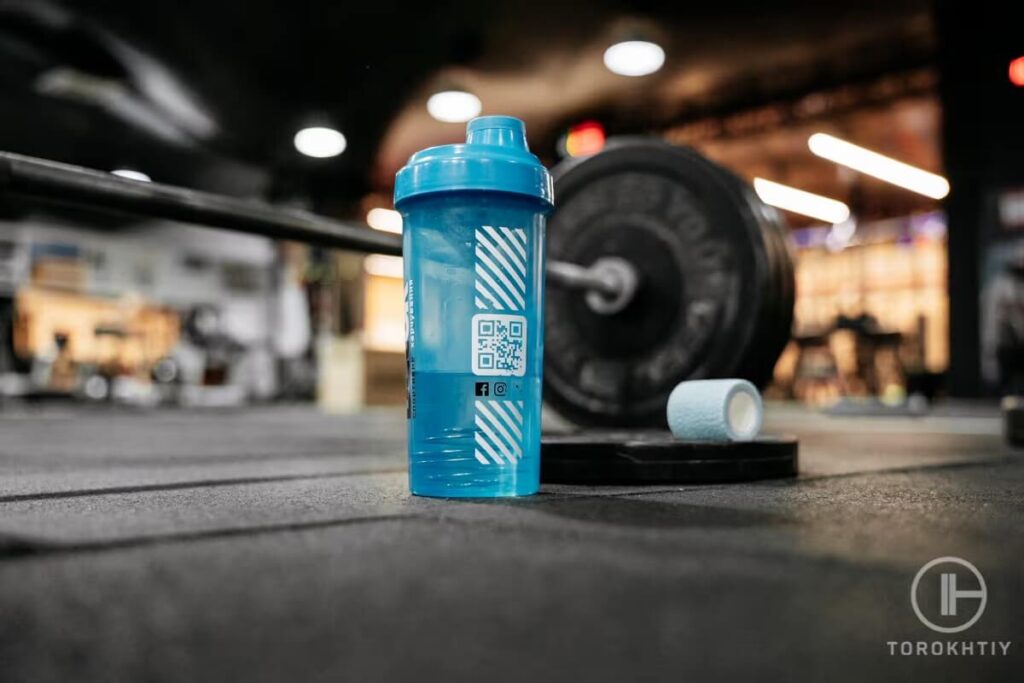
2. Long Term: Losing Weight but Not Muscles
Sticking with creatine supplementation is sure to pump you up for workout sessions. And it’s not only limited to resistance training. It also improves aerobic capacity by optimizing VO2 max and other cardiovascular functions.
You’ll be able to lift heavier, sprint longer, or excel at any calorie-crushing modality of your choice. A 4-week program ended with a 17% improvement in cycling and an 18 lb increase in 1RM bench press. Thus, you can quickly widen the deficit and shed those extra pounds.
Another indirect upside of creatine is its help with muscle recovery, damage, and soreness after exhaustive exercises. Does creatine burn fat? Once muscles are secured, your body is directed to melt fat in the case of a deficit. Athletes frequently rely on creatine to reduce fat percentage without affecting muscular strength and power.
Why Is It Important to Distinguish Between Total Body Mass and Fat?
As much as we like to see those numbers climbing down on the scale, not every pound is created equal. You might see an athlete with a higher weight but a leaner and slimmer profile. The difference lies in the body composition, dissecting overall mass in the muscle-to-fat ratio. Let’s look at two helpful markers.
Having 20 pounds more fat may give you a fluffier appearance (and it’s not cute.) The functions are also distinct. Fats are insulators, whereas muscles boost your basal metabolic rate thus burn more calories. Although the role of muscle mass in overall caloric consumption is greater than fats, it’s still insignificant.
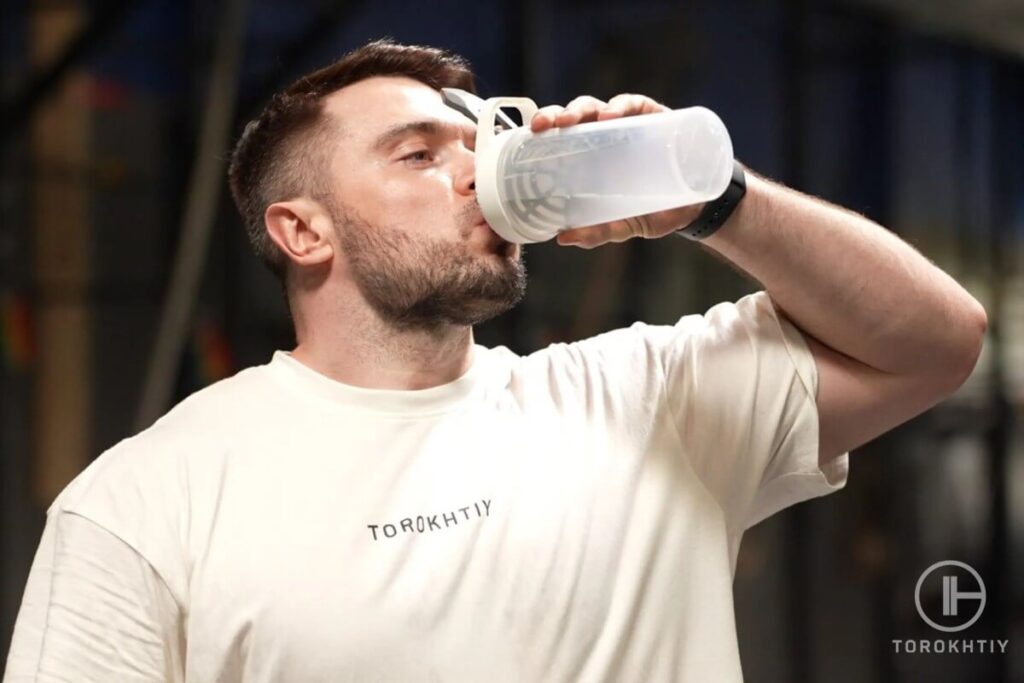
1. Body Mass Index (BMI)
BMI doesn’t factor in the fat and muscle distribution. The weight and height of an individual determine the index value. Still, BMI is as accurate for predicting metabolic and disease outcomes as more complex measures of body fatness.
| Description | BMI Range |
|---|---|
| Underweight | <18.5 |
| Normal | 18.6-24.9 |
| Overweight | 25.0-29.9 |
| Obesity | >30.0 |
2. Body Fat Percentage
There is a thing called normal weight obesity. Research indicates that a higher fat percentage exposes you to obesity-related diseases and death rate, regardless of what BMI shows. Following are the norms for different categories.
| Description | BMI Range | Women |
|---|---|---|
| Essential Fat | 2-5% | 10-13% |
| Athletes | 6-13% | 14-20% |
| Fit People | 14-17% | 21-24% |
| Acceptable | 18-24% | 25-31% |
| Obese | >25% | >32% |
Skin fold measurement and bioelectrical impedance analysis are readily available methods for body fat percentage in fitness and healthcare centers. These tools provide a rough estimate. More precise calculations with X-ray and water displacement are complicated and costly.
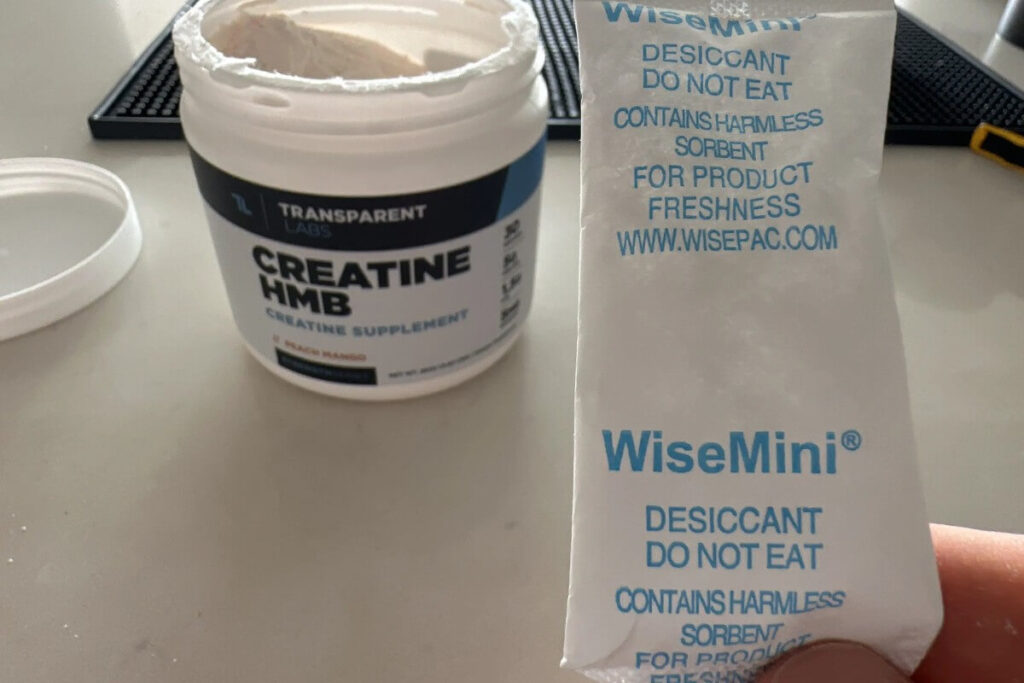
Why Is Creatine More Likely to Improve Body Composition in the Long Term?
By now, you have an idea that our goal is to get rid of stubborn fat. Does creatine help with fat loss? It surely can! Given enough time and necessary lifestyle changes, you’ll notice positive effects on your body weight and shape! There are three reasons to believe that. We’ll go over them one by one.
1. Influencing Fat Cells
Fat cells (adipocytes) are small pockets of energy. The elevation in body weight multiplies their size and quantity. Research tells us that the lack of creatine levels in these cells triggers obesity. Hence, enhancing creatine uptake to adipose tissues is an opportunity to lose weight over time. Although it may not translate into bodywide changes per se, the combination of creatine and exercise burns more fat than exercise alone.
2. Building Lean Muscles
Gaining lean muscles is a top priority. They are free of excessive fat and connective tissues. Does creatine make you lean? One study on sedentary females indicated a 60% difference in lean muscle gains between creatine-plus-exercise subjects and those who were only strength trained. Similarly, a meta-analysis of over 100 studies concerning the effects of creatine on body composition calculated an average 2.2% increase in lean mass and a 3.2% respective decrease in body fat.
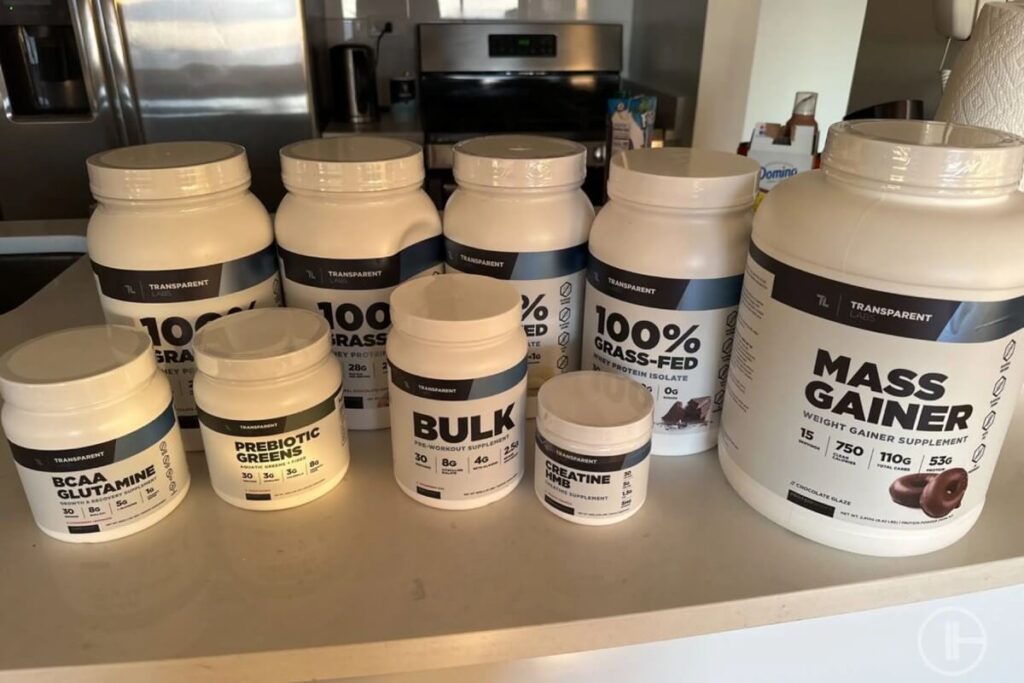
3. Burning More Calories
The number of calories torched boils down to the type, intensity, and duration of the activity. For example, a 185 lb person can burn 168 or 440 calories with a half-hour yoga or rowing session, respectively. We know creatine supplements shore up your strength and endurance. A typical serving adds a negligible amount of calories. Furthermore, creatine metabolism has a significant role in controlling energy expenditure and diet-induced obesity.
Fact Check: Is creatine good for weight loss? The results of creatine monohydrate for weight loss aren’t researched as fiercely as for muscle strength and growth. There is an underlying link with energy expenditure, metabolism, and cellular bioenergetics. However, more human-subject research is required to disclose and apply the relationship between creatine and weight loss in clinical programs.
How to Lose Weight Using Creatine?
If you opt for creatine to lose weight, the following steps and tips will come in handy. While preparing for contests, bodybuilders are kept at a 0.5-1% weekly weight loss to maximize muscle retention. You should be slow and steady.
1. Maintain an Optimal Dosage
Creatine takes time to assimilate. There are two ways to observe supplements. First, you can go for the much-touted loading phase, where you’ll consume about five servings (roughly 20g) daily. It’s designed to fully saturate the muscles. The second route is to maintain a low dose (3-5g). This protocol will put you on par with loading within a couple of weeks. Plus, it won’t upset your stomach.
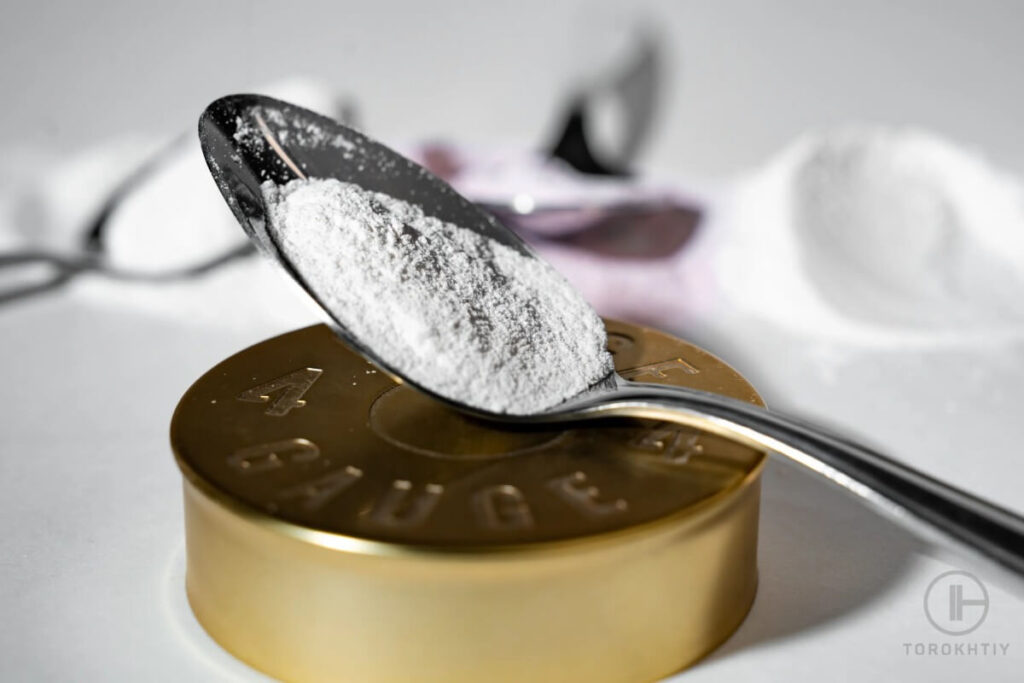
2. Don’t Worry About Timing
People wonder when to take creatine. It instantly boots performance. But it also repairs muscles post-workout. Actually, we have three camps: before, after, or whenever! Fitness coaches agree that you’ll reap all the benefits of creatine for weight loss and muscle gain as long as you’re consistent with the supplement. The exact timing is of not much importance.
3. Take Vitamin D in Conjunction
Do you know almost 50% of the worldwide population has Vitamin D deficiency? It’s an important micronutrient that only a few food items and sun exposure can bring you. Adipose tissues store it, reducing the bioavailability. Those who have a higher BMI and fat percentage report lower blood levels of Vitamin D. A 12-week study confirmed the decrease in body fat with D3 supplementation.
4. Do Resistance Training
Those cardio sessions are surely irreplaceable. But try to incorporate strength training into your routine. For one, you’ll put on lean muscles, leading to higher energy expenditure. Secondly, it’ll let you squeeze the maximum work out of phosphocreatine stocks. The best resistance training program relies on compound movements, progressive overload, and optimal recovery.
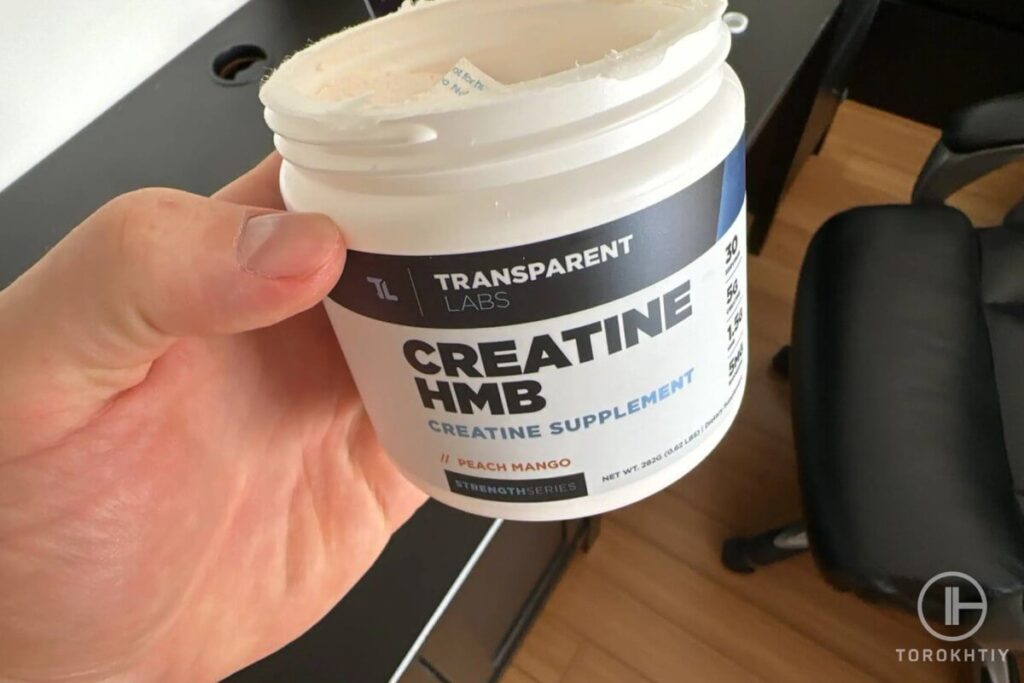
5. Get Enough Sleep and Water
Elders were right! Drink plenty of water. Excessive water helps with weight loss by suppressing appetite. It increases energy expenditure. It might also metabolize stored fats and carbs. Then, hydration hypes your body to perform well in workouts and let go of retained water weight. Sleeping is vital for all bodily functions, which include achieving and sustaining a healthy weight.
6. Rein In Your Taste Buds
Even an hour-long sprint doesn’t count if you grab a Big Mac and Coke on your way back. Try fiber-rich items. Increase protein intake from 0.8g to 1.2g per kilo body weight to retain muscles during weight loss. Ditch refined carbs and added sugar. Supplement brands quietly slip a lot of them to add flavor and get you to buy more. Consult a professional nutritionist for a concrete diet plan.
7. Our Recommended Creatine Supplement – Transparent Labs CREATINE HMB
Transparent Labs Creatine HMB is an effective Strength Series formula. As per its name, the Utah-based company goes the extra mile to ensure transparency and certification of its products. They never use suspicious proprietary blends, artificial sweeteners, preservatives, or colors.
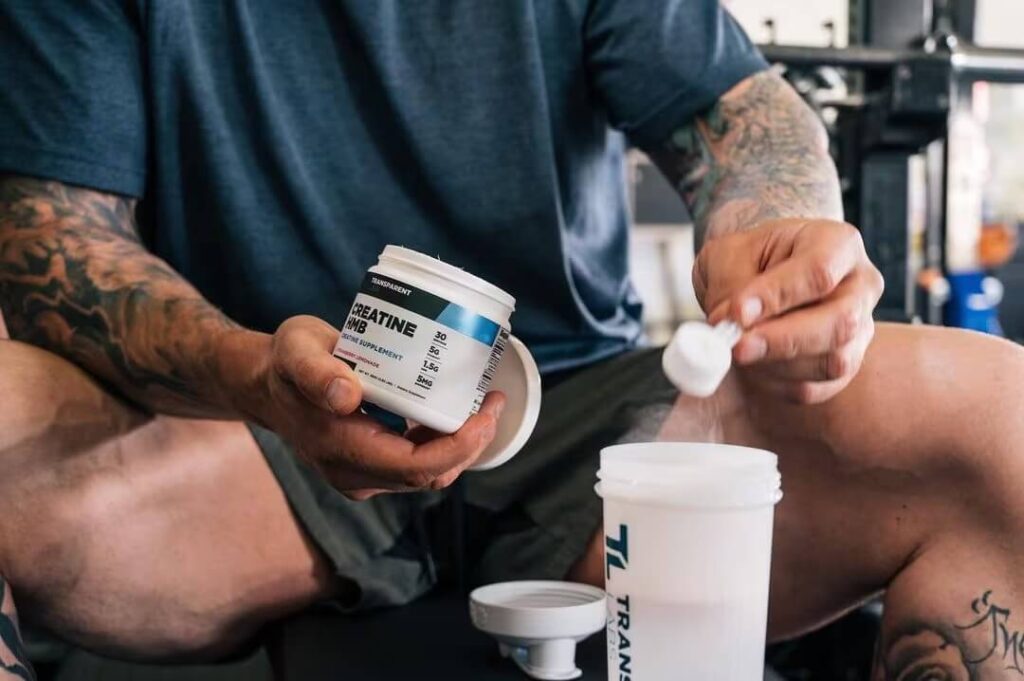
The Creatine HMB is available in two sizes and ten different flavors. There is an unflavored variant, too. Each scoop picks up almost 10g of powder. Half of which is creatine monohydrate. The rest comprises HMB – another compound claimed to build lean body mass and decrease fat mass. Vitamin D, BioPerine, and natural flavors only add to the attraction.
FAQ
Can I Lose Weight on Creatine?
Weight loss is 100% possible on creatine. It skyrockets energy production and builds strong, lean muscles. With credible dietary and workout guidelines, you can gradually dispose of fat accumulation and adjust body weight.
Should I Take Creatine While Trying to Lose Weight?
We have little evidence to suggest that creatine directly facilitates your weight loss goals. However, it can’t sabotage them. On the other hand, creatine supplementation is good for exercise performance, muscle retention, and power output. All these things can be helpful while pushing for a calorie deficit.
Does Creatine Help Gain or Lose Weight?
You may see unalarming water weight initially. Creatine decreases fat mass at best or doesn’t bother it at worst. In any case, stocking your muscles with creatine assures you’ll perform better in the gym. Now, it’s up to you whether to bulk up or slim down.
Conclusion
After decades of research, nobody questions the effectiveness of creatine. It works for building muscles and strength! The question is, what else does it work for? Does creatine help you lose weight?
With consistency, you’ll see improvement in your athletic performance, lean body mass, and calorie expenditure. Thus, knocking your body back into the normal BMI range is pretty much possible. Remember, your diet and activity eventually determine the calorie surplus/deficit at the end of the day. Also, supplements are not medicines, hence outside of FDA purview. Make sure you’re getting a reputable formula.
What do you think about using creatine for weight loss? We’ll wait for your opinion in the comment section.
Also read:
- Creatine Monohydrate vs Micronized
- Should Teens Take Creatine
- Can You Take Creatine With Pre Workout
- Creatine Hydrochloride vs Monohydrate
- Does Creatine Make You Gain Weight
- Best Time to Take Creatine
- When Does Creatine Start Working
- How Much Creatine Is Too Much
- Types of Creatine
References:
- M WISHNOFSKY, “Caloric equivalents of gained or lost weight,” Am J Clin Nutr. 1958 Sep-Oct;6(5):542-6
- Scott C. Forbes et al., “Changes in Fat Mass Following Creatine Supplementation and Resistance Training in Adults ≥50 Years of Age: A Meta-Analysis,” J Funct Morphol Kinesiol. 2019 Sep; 4(3): 62
- Jessica Butts et al., “Creatine Use in Sports,” Sports Health. 2018 Jan-Feb; 10(1): 31–34
- Richard B. Krieder et al., “International Society of Sports Nutrition position stand: safety and efficacy of creatine supplementation in exercise, sport, and medicine,” Journal of the International Society of Sports Nutrition Volume 14, 2017
- Michael E. Powers et al., “Creatine Supplementation Increases Total Body Water Without Altering Fluid Distribution,” J Athl Train. 2003 Jan-Mar; 38(1): 44–50
- Murphy A.J. et al., “Effects of creatine supplementation on aerobic power and cardiovascular structure and function,” Journal of Science and Medicine in Sports. VOLUME 8, ISSUE 3, P305-313
- C. P. EARNEST et al., “The effect of creatine monohydrate ingestion on anaerobic power indices, muscular strength and body composition,” Acta Physiologica Scandinavica. Volume 153, Issue 2 p. 207-209
- Yue Jiaming et al., “Creatine supplementation effect on recovery following exercise-induced muscle damage: A systematic review and meta-analysis of randomized controlled trials,” J Food Biochem. 2021 Oct;45(10):e13916
- Chia-Chi Wang et al., “Effects of 4-Week Creatine Supplementation Combined with Complex Training on Muscle Damage and Sport Performance,” Nutrients. 2018 Nov; 10(11): 1640
- Jacqueline B. Marcus et al., “Chapter 10 – Weight Management: Finding the Healthy Balance: Practical Applications for Nutrition, Food Science and Culinary Professionals,” Culinary Nutrition. The Science and Practice of Healthy Cooking: 2013, Pages 431-473
- Nami Mohammadian Khonsari et al., “Normal Weight Obesity and Cardiometabolic Risk Factors: A Systematic Review and Meta-Analysis,” Front Endocrinol (Lausanne). 2022; 13: 857930
- Raj Padwal et al., “Relationship Among Body Fat Percentage, Body Mass Index, and All-Cause Mortality,” ACP Journals. Original Research 19 April 2016
- Peter Arner, “Fat Tissue Growth and Development in Humans,” Nestle Nutr Inst Workshop Ser. 2018;89:37-45.
- Lawrence Kazak et al., “Ablation of adipocyte creatine transport impairs thermogenesis and causes diet-induced obesity,” Nature Metabolism volume 1, pages 360–370 (2019)
- Scott C. Forbes et al., “Changes in Fat Mass Following Creatine Supplementation and Resistance Training in Adults ≥50 Years of Age: A Meta-Analysis,” J Funct Morphol Kinesiol. 2019 Sep; 4(3): 62
- K Vandenberghe et al., “Long-term creatine intake is beneficial to muscle performance during resistance training,” J Appl Physiol (1985). 1997 Dec;83(6):2055-63
- J David Branch, “Effect of creatine supplementation on body composition and performance: a meta-analysis,” Int J Sport Nutr Exerc Metab. 2003 Jun;13(2):198-226
- Claire Greenhill, “Role for creatine metabolism in energy expenditure,” Nature Reviews Endocrinology volume 13, page 624 (2017)
- Eric R Helms et al., “Evidence-based recommendations for natural bodybuilding contest preparation: nutrition and supplementation,” J Int Soc Sports Nutr. 2014; 11: 20
- Luc J C van Loon et al., “Effects of creatine loading and prolonged creatine supplementation on body composition, fuel selection, sprint and endurance performance in humans,” Clin Sci (Lond). 2003 Feb;104(2):153-62
- Felipe Ribeiro et al., “Timing of Creatine Supplementation around Exercise: A Real Concern?”, Nutrients. 2021 Aug 19;13(8):2844
- Rathish Nair and Arun Maseeh, “Vitamin D: The “sunshine” vitamin,” J Pharmacol Pharmacother. 2012 Apr-Jun; 3(2): 118–126
- Shamik J Parikh et al., “The relationship between obesity and serum 1,25-dihydroxy vitamin D concentrations in healthy adults,” J Clin Endocrinol Metab. 2004 Mar;89(3):1196-9
- Amin Salehpour et al., “A 12-week double-blind randomized clinical trial of vitamin D₃ supplementation on body fat mass in healthy overweight and obese women,” Nutr J. 2012 Sep 22;11:78
- Vinu Ashok Kumar Vij and Anjali S. Joshi, “Effect of excessive water intake on body weight, body mass index, body fat, and appetite of overweight female participants,” J Nat Sci Biol Med. 2014 Jul-Dec; 5(2): 340–344
- M Girona et al., “Cardiovascular and metabolic responses to tap water ingestion in young humans: does the water temperature matter?” Acta Physiol (Oxf). 2014 Jun;211(2):358-70
- Simon N. Thornton, “Increased Hydration Can Be Associated with Weight Loss,” Front Nutr. 2016; 3: 18
- Evangelia Papatriantafyllou et al., “Sleep Deprivation: Effects on Weight Loss and Weight Loss Maintenance,” Nutrients. 2022 Apr; 14(8): 1549
- Edda Cava et al., “Preserving Healthy Muscle during Weight Loss,” Adv Nutr. 2017 May; 8(3): 511–519
- Jasmine S Thomson et al., “Effects of nine weeks of beta-hydroxy-beta- methylbutyrate supplementation on strength and body composition in resistance trained men,” J Strength Cond Res. 2009 May;23(3):827-35
Why Trust Us?
With over 20 years in Olympic Weightlifting, our team does its best to provide the audience with ultimate support and meet the needs and requirements of advanced athletes and professional lifters, as well as people who strive to open new opportunities and develop their physical capabilities with us.
By trusting the recommendations of our certified experts in coaching, nutrition, dietology, and sports training programming, as well as scientific consultants, and physiotherapists, we provide you with thorough, well-considered, and scientifically proven content. All the information given in the articles concerning workout programming, separate exercises, and athletic performance, in general, is based on verified data. We ensure that you can rely on our professionals’ pieces of advice and recommendations that can be treated as personalized ones which will benefit you and fully meet your needs.
The product testing process is described in more detail here
Author: Oleksandr Maksymenko
Certified Sports Nutritionist,
MSc Sports Dietetics
Specializing in: Weight management, Fitness / Sports nutrition
Oleksandr is a professional fitness nutritionist certified by the Fitness Professional Association (FPA). He follows the principles of evidence-based dietetics and fosters a healthy relationship with food in his clients, ensuring there are no strict prohibitions on their favorite foods or frequent lapses. His primary goal is not only to achieve results for you but also to sustain them over the long term, all while enjoying tasty and delicious food.

